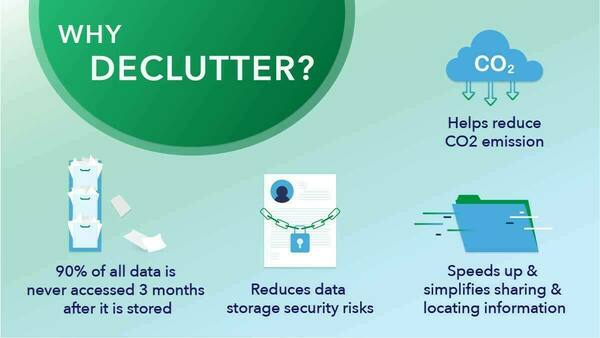
Maintaining online accounts and their data for Notre Dame staff, faculty, and students is no small task. The Office of Technology (OIT) manages approximately 100,000 accounts, and up to this year, many of those accounts were classified as inactive and no longer being used by the account owner.
File storage at Notre Dame
For over 15 years, Notre Dame received free unlimited cloud storage from many vendors. However, in recent times, these vendors discontinued the availability of unlimited storage at no cost. In response to that decision, OIT and University leadership worked together to find a process to:
- Better manage Notre Dame’s storage footprint
- Maintain strong information security for the campus community
- Provide more effective resource management
To meet these needs, the account lifecycle process was developed and implemented.

Account storage clean-up process
Before this process began, the NetID Access to University Information Technology Resources policy was updated to define how long account data would be retained after the account was disabled. Once the account lifecycle process was rolled out, it targeted inactive Google and Box accounts owned by individuals who left Notre Dame over a year ago.
Files contained in those accounts totaled over 500TB (terabytes) of stored data. This is equivalent to approximately 137 trillion printed pages—filling about 28 billion banker boxes.
Earlier this spring, inactive faculty and staff accounts—and content associated with them—have already been removed. The final phase will include removing over 35,000 student accounts and begins on Thursday, June 6. These are owned by students who left Notre Dame prior to July 30, 2023.
Take action to protect access to shared content you don’t own
If you have access to shared files or folders owned by someone whose account is classified as inactive, these files may be at risk of being deleted.
To maintain access to this shared content, move them to Google Shared drives or a Box Group account to guarantee continued access. More information is available in these knowledge articles:
Best file storage practices
Once the final phase of the account lifecycle process is complete, inactive accounts and any content associated with them will be deleted automatically after one year. As a result, it is important to store any files and folders you want to share in Google Shared drives or a Box Group account.
Following these file storage best practices offers two important benefits:
- Provide continued file access for collaborators—even after the content creator leaves Notre Dame and their account becomes inactive
- Help Notre Dame reduce its overall carbon footprint now and in the future
Additional information is available at go.nd.edu/accountlifecycle.